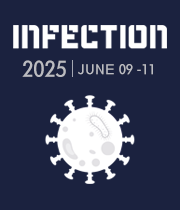Title : False-negative HIV antibody test results in a patient with advanced HIV disease – related disseminated histoplasmosis
Abstract:
Background: Disseminated or extrapulmonary histoplasmosis is seen in patients with impaired T- lymphocyte function. As one of the AIDS-defining conditions, the diagnosis of histoplasmosis is an indication to recommend HIV screening and testing.
Case: We report a case of a 29-year-old Filipino male presenting with chronic generalized papular and pustular eruptions. Histopathology showed findings typical of deep fungal infection and he was treated for presumptive disseminated infection. Repeated HIV antibody tests (done in July 2023 and September 2023) were non-reactive. The patient was lost to follow-up until in April 2024 when he noted recurrence of the skin lesions. Repeat skin histopathology revealed histoplasmosis and histoplasma urine antigen was positive. HIV antibody test (done in June 2024) remained non-reactive. High index of suspicion led to HIV-1 RNA and CD4 cell count testing which confirmed the diagnosis of advanced HIV disease. Subsequently, HIV antigen and antibody testing were repeated using chemiluminescence enzyme immunoassay, enzyme linked fluorescent assay and immunochromatography test which established the impression of repeatedly false-negative results of the previous HIV antibody screening tests.
Discussion: In the Philippines, highly sensitive and specific rapid diagnostic tests (RDTs), such as the 3rd generation immunoassays, are used for HIV screening. The rapid HIV diagnostic algorithm (rHIVda) is followed in which confirmatory tests will only proceed if the screening test is reactive. However, there are rare cases of false negative screening tests including persons with defects in HIV-specific immunity who fail to generate certain antibodies, persons on pre-exposure prophylaxis who acquired HIV, hypogammaglobulinemia and those on potent immunosuppressant. Given the current diagnostic algorithm, a false negative HIV antibody test poses a risk for delay in initiation of antiretroviral therapy and progression to advanced disease.
Conclusion: In a resource-limited setting, there is lack of recommendation regarding patients with substantial risk factors for HIV who had false negative HIV screening tests using the 3rd generation immunoassay. Considering the experience from this case report, we recommend further review of the HIV testing algorithm and use of more advanced point of care tests.


